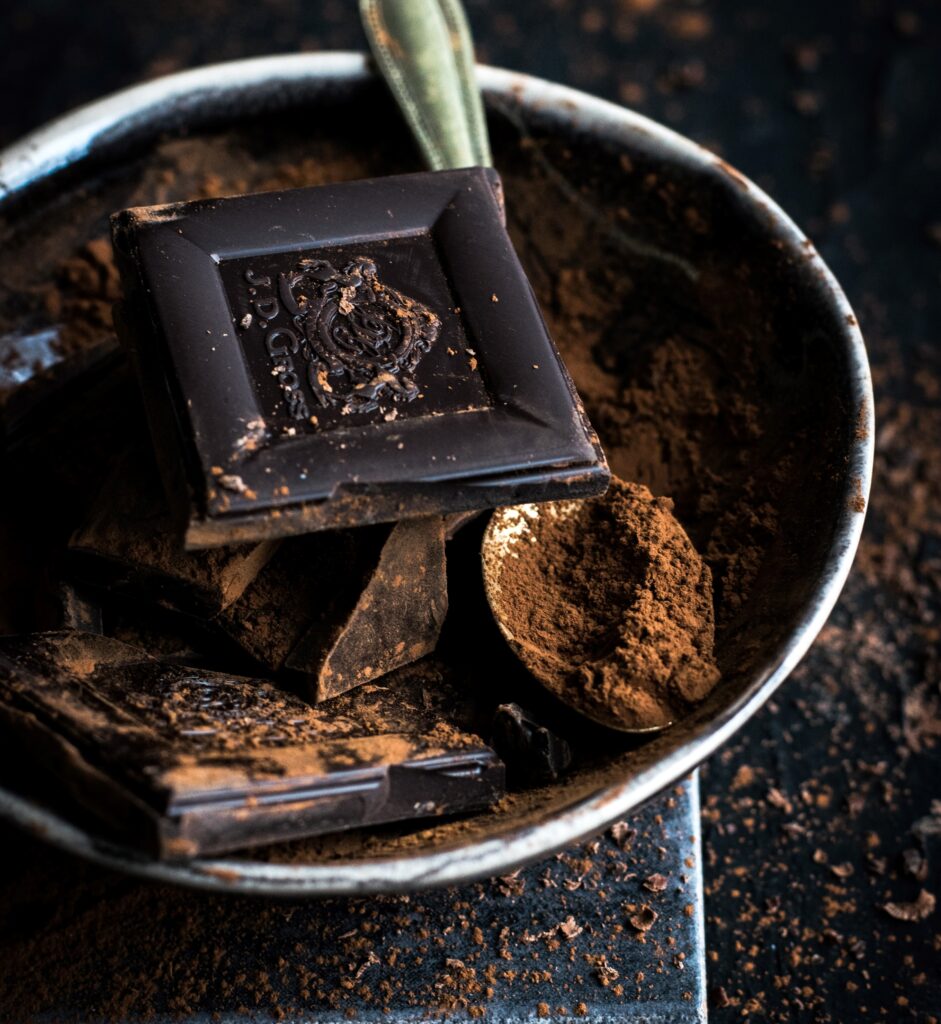Chocolate is made from cacao, a plant rich in minerals and antioxidants. Cocoa butter, sugar, milk, and trace amounts of cacao are all found in commercial milk chocolate. Dark chocolate, on the other hand, contains far more cacao and far less sugar than milk chocolate.

In this article, we will look at some of the health benefits of dark chocolate. We also discuss nutrition, risks and considerations, and how much to eat.
Overview
Dark chocolate is a type of chocolate that contains cocoa solids and cocoa butter but not milk or butter like milk chocolate. Bitter chocolate or unsweetened chocolate is dark chocolate that has no added sweetener.
Milk chocolate contains anywhere from 10 to 50 percent cocoa solids, cocoa butter, milk in some form, and sugar, whereas dark chocolate contains 50-90 percent cocoa solids, cocoa butter, and sugar. Though dark chocolate should not contain milk, traces of milk may be present due to cross-contamination during processing because the same machinery is frequently used to produce both milk and dark chocolate.
Unsurprisingly, the percentage of cocoa solids can influence the magnitude of the benefits of dark chocolate. The higher the percentage of cocoa solids, the more flavonoids and lower sugar content, and thus the more beneficial.
Click here to buy Dark chocolate: https://foodvez.com/product/combo-dark-chocolates-pack-of-2-50g-each/
Nutritional information
A 101-gram (g) bar of 70%–85% cocoa solids dark chocolate contains:
- 604 calories
- 7.87 g of protein
- 43.06 g of fat
- 46.36 g of carbohydrates
- 11.00 g of dietary fiber
- 24.23 g of sugar
- 12.02 milligrams (mg) of iron
- 230.00 mg of magnesium
- 3.34 mg of zinc
[Source: https://www.medicalnewstoday.com/articles/dark-chocolate#nutritional-information]
Health benefits of Dark chocolate
Chocolate does not have to be a sinful treat! The advantages of incorporating dark chocolate into your diet are numerous:
Dark chocolate may help to prevent heart disease and stroke.
One of the most significant advantages that researchers tout is the role that dark chocolate may play in improving heart health. According to research, the flavonoids in dark chocolate help to maintain heart health. Flavanols are linked to nitric oxide production, which relaxes blood vessels and improves blood flow. As a result, blood pressure is reduced. Improved blood flow is also beneficial to our overall health. Improved blood flow means less risk of heart disease.
It has been shown to improve cognition, prevent memory loss, and boost mood.
According to research, eating dark chocolate with a high percentage of cacao, such as 70%, may benefit your brain. Chocolate increases neural activity in areas of the brain associated with pleasure and reward, reducing stress and improving mood. Dark chocolate has long been associated with feelings of enjoyment and pleasure. These sensations could be caused by polyphenolic compounds.
Important mineral source
Dark chocolate is high in minerals such as iron, magnesium, zinc, copper, and phosphorus. These minerals are used in your body to support factors such as immunity (zinc), bone and tooth health (phosphorus), and contribute to better sleep quality (magnesium).
Protects skin from sun damage.
Dark chocolate’s antioxidants improve blood flow to the skin and protect it from sun damage. Flavanols are also beneficial in fighting cell damage caused by ageing due to their antioxidant properties. A small study even discovered that dark chocolate, which is high in flavanols, can protect your skin from the effects of UV (ultraviolet) rays.
Dark chocolate may help to lower blood sugar levels and the risk of developing diabetes.
Eating chocolate every day may not sound like the best way to prevent diabetes, but studies have shown that eating healthy amounts of dark chocolate rich in cacao as part of a healthy diet can actually improve how the body metabolises glucose. Scientists have discovered some evidence that flavanol-richer chocolate can increase insulin sensitivity, though more research is needed. The more insulin sensitive you are, the lower your risk of diabetes.
Should you consume dark chocolate on a daily basis?
Moderation is essential with any sweet treat. One common misconception is, “Well, dark chocolate is good for me, so I can eat as much as I want.” In terms of antioxidants, such as flavanols, dark chocolate has some advantages. However, they are not compelling enough for us to recommend that you include this in your diet. It contains a lot of calories. It’s certainly something to be enjoyed in moderation.
Side effects and risks
The flavanols found in cacao solids provide the majority of the health benefits of dark chocolate. However, the flavanol content of dark chocolate products varies. The processing methods used by different manufacturers can also affect the flavanol content of the chocolate.
Although dark chocolate contains antioxidants and minerals, it is also high in sugar and fat, making it a high-calorie food.
Dark chocolate contains fat in the form of cocoa butter, the majority of which is unhealthy saturated fat.
Dark chocolate has a bitter taste and contains more caffeine at higher percentages.
People should try to limit their intake of dark chocolate in order to avoid consuming too many calories, fats, and sugars.


